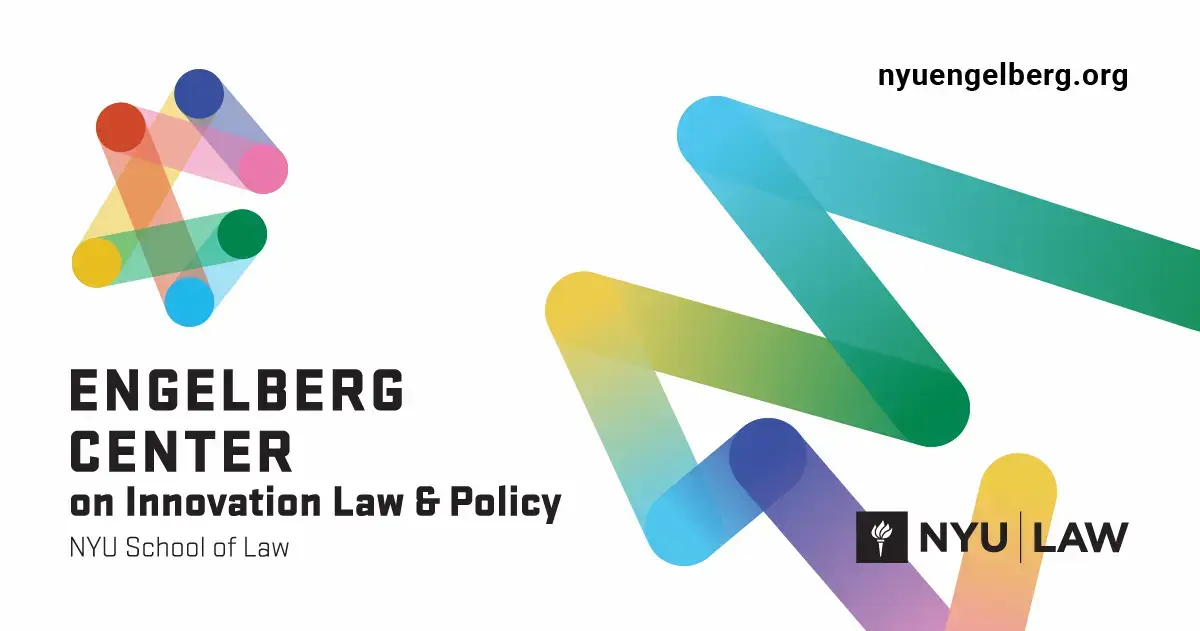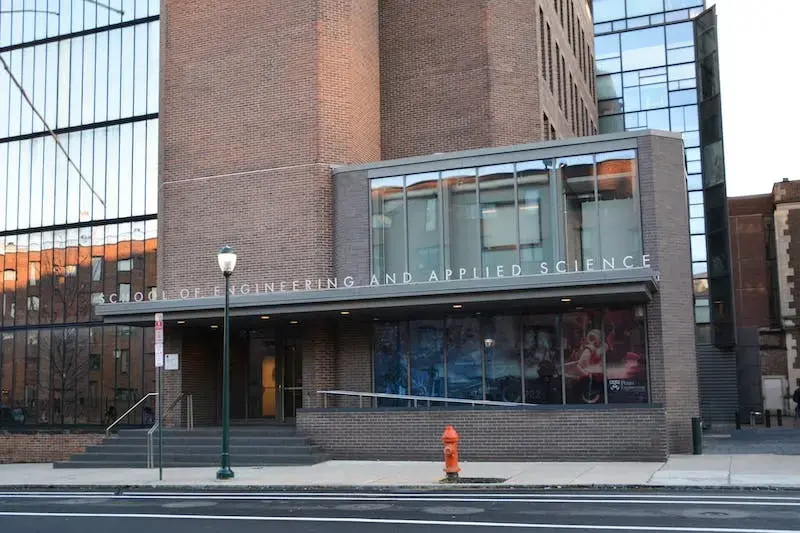

alyaza [they/she]
internet gryphon. admin of Beehaw, mostly publicly interacting with people. nonbinary. they/she
- 83 Posts
- 95 Comments
The right choices are generally more expensive (in terms of up-front costs, even if they’re less expensive in the long run) and/or require more time investment, both of which are lacking for the poor.
or just the non-technologically savvy. a lot of the issue here is a technological hurdle, fundamentally—it takes a certain level of technological knowledge for someone to, say, pirate ebooks versus just buying them legitimately and that’s a big point of friction for people in making the “right choice”. we have to keep in mind that for a lot of internet-using people nowadays, knowing the ins-and-outs of Facebook or how to download a browser add-on is probably a legitimate technical skill and on the upper bounds of what they’d know navigating spaces like this. and we don’t make it easy necessarily for people to acquire and advance the technological knowledge we’re talking about here either.

 English
English- •
- www.nyuengelberg.org
- •
- 5M
- •


if the social prescription to harassment of moderators is “quit because you’re a baby” then you’re going to have many fewer pleasant spaces on the Fediverse in which to exist—because yeah, a lot of people will just quit. i am agnostic on the public modlog overall, but this is an obvious concern with it that i’m not convinced can just be dismissed idly. i obviously have better things to do than a thankless, payless job in which harassment would be dismissed like that.

 English
English- •
- www.404media.co
- •
- 5M
- •

 English
English- •
- www.bloomberg.com
- •
- 5M
- •

 English
English- •
- www.niemanlab.org
- •
- 5M
- •


Google “Search Liaison” Danny Sullivan confirmed the feature removal in an X post, saying the feature “was meant for helping people access pages when way back, you often couldn’t depend on a page loading. These days, things have greatly improved. So, it was decided to retire it.”
okay but… has it? this seems like an unfounded premise, intuitively speaking


One thing though: Criticism of admins should never be considered a rule breaking event provided it is not derogative or endangering, and if my reply to you is considered a reason for admin action then I need to reconsider my participation in beehaw as well.
just to be clear the issue here is/was not you critiquing me–i don’t care about that particularly, comes with the job–it’s the tone which seemed like it implied being held to any moderation standard was problematic. because they tend to cause a scene about how they’re being censored we’re not super interested in having people in that category on here, and so whenever someone responds in that way it’s a red flag


i’ve already rendered my verdict here—which was i banned the other person for a bit and not you (even though you both said things which run afoul of our rules) because you’re a member of our instance and we can afford to be more patient and understanding with you accordingly. but to be clear: if you respond in this manner even to very light moderator feedback then for moderation purposes you’ll be held to outsider standards going forward. which is to say, you’re not going to get anywhere near the benefit of the doubt or the lenience when you break rules.

 English
English- •
- www.sagaftra.org
- •
- 7M
- •

 English
English- •
- techcrunch.com
- •
- 7M
- •

 English
English- •
- www.technologyreview.com
- •
- 7M
- •


shoutout to harkening to Airbnb btw:
“Homelessness is a growing problem, and some providers worry that a homeless person may destroy or soil the bathroom,” she said. “Flush provides a way to access and provide access to a clean, reliable bathroom … Airbnb was so successful because it provides something we all need — a roof over our heads — and Flush is doing the same for bathrooms.”
yeah man, Airbnb really solved homelessness and the “having a roof over your head” problem huh


“over-stressing workers and pressing them to be as efficient as possible, causing them to cut corners with safety” is such a universal point of failure that it’s frequent in every modern industry and a contributing factor in a huge number of workplace incidents and industrial disasters. respectfully, you would have to actively ignore reality to hold the position you currently do, and if you think that’s the worker’s fault and not the company incentivizing them to do unsafe things to keep their jobs, i can really only describe you as a corporate apologist or bootlicker


Every worker is and should be pressured and monitored to ensure they’re working efficiently. That doesn’t give them carte blanche to disregard safety protocols.
the latter will necessarily follow from the former in almost every situation, because “inefficient workers” often get fired or are led to believe they will be fired and they have to make up the difference in that perception somewhere. this is still the company’s fault

 English
English- •
- news.sky.com
- •
- 7M
- •


i am familiar with the analogy, but i think it would obviously be worse if they agree with what they’re platforming instead of just being kind of half-baked morons who don’t have good political positions or cynically platforming it because it makes them money. one can, in effect, be remedied by showing them social or financial retribution, but the other would be a manifestation of a much more serious social problem that cannot be immediately dealt with


I’m sorry what? The idea that smaller communities are somehow less radical is absurd.
i’d like you to quote where i said this–and i’m just going to ignore everything else you say here until you do, because it’s not useful to have a discussion in which you completely misunderstand what i’m saying from the first sentence.


When you ban people from a website, they just move to another place, they are not stupid it’s pretty easy to create websites. It’s purely optical,
you are literally describing an event that induces the sort of entropy we’re talking about here–necessarily when you ban a community of Nazis or something and they have to go somewhere else, not everybody moves to the next place (and those people diffuse back into the general population), which has a deradicalizing effect on them overall because they’re not just stewing in a cauldron of other people who reinforce their beliefs


i go back and forth on how much i think this tendency’s willingness to host content like this and/or go to the mat for it is agreement and how much of it is just stupidity or ill-conceived ideology. a lot of these guys seem like they agree with elements of fascism, but a lot of them are also… just not smart.


the weirdest thing to me is these guys always ignore that banning the freaks worked on Reddit–which is stereotypically the most cringe techno-libertarian platform of the lot–without ruining the right to say goofy shit on the platform. they banned a bunch of the reactionary subs and, spoiler, issues with those communities have been much lessened since that happened while still allowing for people to say patently wild, unpopular shit


techno-libertarianism strikes again! it’s every few years with these guys where they have to learn the same lesson over again that letting the worst scum in politics make use of your website will just ensure all the cool people evaporate off your website–and Substack really does not have that many cool people or that good of a reputation to begin with.


things have generally been going good in this section of the thread, but just a general reminder to all participants that thoughtful comments with some time put into them (as a few of the replies to this comment have been) are going to lead to more constructive discourse than quick, impulsive ones. you’re also definitely not obliged to respond to everything you disagree with or anyone who replies to you, so keep that in mind

 English
English- •
- apnews.com
- •
- 8M
- •

 English
English- •
- arstechnica.com
- •
- 8M
- •


And apparently, in the USA there is a whole party devoted to child marriage and other ways to have sex with minors. That might be the better point to start, because they actually have a say regarding laws on that matter.
i’m not sure why we’re acting as if condemning Richard Stallman and the Republican Party for their equally bad takes in this sphere are mutually exclusive of each other.

 English
English- •
- solar.lowtechmagazine.com
- •
- 8M
- •

 English
English- •
- www.niemanlab.org
- •
- 9M
- •


joint statement by GMG Union and Onion Union:
The Onion and GMG Unions are saddened to report that our colleagues at Gizmodo Español, a site that once housed original, quality Spanish-language reporting, have been replaced en masse by an AI translation service. Instead of relying on the talented journalists at Gizmodo Español, G/O Media has enacted an automation that takes English-language Gizmodo articles, translates them poorly into Spanish, and posts them on Gizmodo Español almost immediately, with no Spanish-language editing. We offer our deepest sympathies to the Gizmodo Español team and share in their frustration as jobs for working journalists continue to disappear worldwide. The Gizmodo Español team comprised of four full-time employees—one editor and three writers—who have been employed by G/O media for over a combined 25 years. Because of the nature of their yearly contracts, they will not receive adequate severance.
They were employed at half the rate of American staff writers due to the nature of these contracts, and were rarely offered raises. Unfortunately this move to eliminate the Español team represents yet another broken promise from G/O Media CEO Jim Spanfeller and Editorial Director Merrill Brown, who have repeatedly said that the company’s AI experiments were intended to supplement human writing, not replace it. This week, a team of four has been [replaced] by an undisclosed automated machine translation service. Adding insult to injury, when the Gizmodo staff objected to having their bylines attached to machine translations, G/O management removed all bylines from Gizmodo Español—even the bylines of the four journalists who were laid off by G/O Media this week. We remain stringently opposed to G/O Media’s use of AI-generated content and pledge to continue fighting on behalf of journalists and the indispensable public service they provide.
As always, we appreciate your support — and your continual support of real journalism.
like, to be clear: the scope of the article is laid out by those qualifiers, so naturally it’s not going to prescribe how to get rid of in-built batteries in consumer electronics since they fall outside of that scope. even so, it addressed the quibble you’re getting at here pretty bluntly, i think:
Of course, outsourcing chemical energy storage to the device is not the most sustainable option. The production of lithium-ion batteries requires fossil fuels, and (unlike lead-acid batteries) they are not recycled. The best solution, of course, is to reduce the use of electrical devices. But charging them with direct solar energy is a lot more sustainable and efficient than via other batteries or a fossil-fueled electricity grid. If we use high-tech devices, then preferably in the smartest way possible.
and Low-Tech Magazine has previously covered alternatives to battery technology in other posts. so i’m just not seeing what the objection here is.
yes, i literally posted it. the article’s context makes it pretty obvious that “Off-Grid Without Batteries” refers to off the power grid (because you’re receiving direct solar energy) without batteries for holding your solar panel’s energy (because those are carbon intensive and expensive), hence i don’t know what the purpose of your comment is and it appears entirely derived from reading the headline and thumbnail alone.
Instead of contributing to a project where only dessalines, lionirdeadman and nutomic dictate what gets approved, why not make a fork with the settings most people agree on?
rest assured: our admin here has basically no say over the project’s priorities, and we’ve also been fighting tooth and nail like the person you’re quoting to get anything productive done (including priorities we think are vital to the project’s long term success like better mod tools). cc: @Lionir@beehaw.org and @Penguincoder@beehaw.org for more details on that.


I’m sorry to say, but it really does not matter what other people think. It’s like me, who has never been at your house, and never planning to be, thinking that your house rules are weird, arbitrary and petty. I’m also weirded out that you didn’t let that or this person in your house.
in a federated system necessarily yes it kind of does regardless of if you think that’s fair. we get shit for what we believe (and maintain) are extremely valid and straightforward reasons for defederating with a handful of not-malicious instances and that can impact who comes here and why. if you were to create an image of being–for lack of better wording–a messy bitch with a catty and overdramatic attitude (as many people seem to read this as being) your instance will gain that reputation, it will influence who your users are, and it can go so far as to be negatively reflected onto completely innocent users.
now, if the mastodon.art person doesn’t care about that then they don’t care, and i’m again not saying that i care either way–it’s their website, they can do what they want–but the presumption that this is in a vacuum or absent consequences is silly. it’s not!


There’s really nothing weird, petty or childish. You get a warning (suspension?) if you don’t fix the problem, you get defederated.
the issue here is not that i’m telling them to not do things–i don’t care what they do or don’t do. what i’m pointing out here is that people probably find this really stupid because it has an identical structure to and is similarly frivolous looking to a 16-year-old making a 10 page callout post against an artist for drawing problematic height gap


To me it looks like fragile egos are all around, and somehow get “offended” when defederation happens.
i would imagine most people’s issue here is this seems to be more “extremely petty schoolhouse drama” than “actual thing worth defederating over”, especially when mastodon has better and more granular defederation tools at its disposal than lemmy or calckey


And when they do, laws like this will be used to stop anyone from dethroning the dictatorship and restoring democracy.
this might be the most obvious non-sequitur i’ve ever seen—laws like “don’t advocate for a second Holocaust” or “don’t spread COVID misinformation” have literally no relation or causation to what far-right authoritarians believe or will do if they take power. the idea that this is what will empower them to smother democracy is on its face completely absurdist.




































not that i’m aware of, and fixing a database schema once it’s already in place tends to be a clusterfuck so i’m very skeptical it will get better any time soon